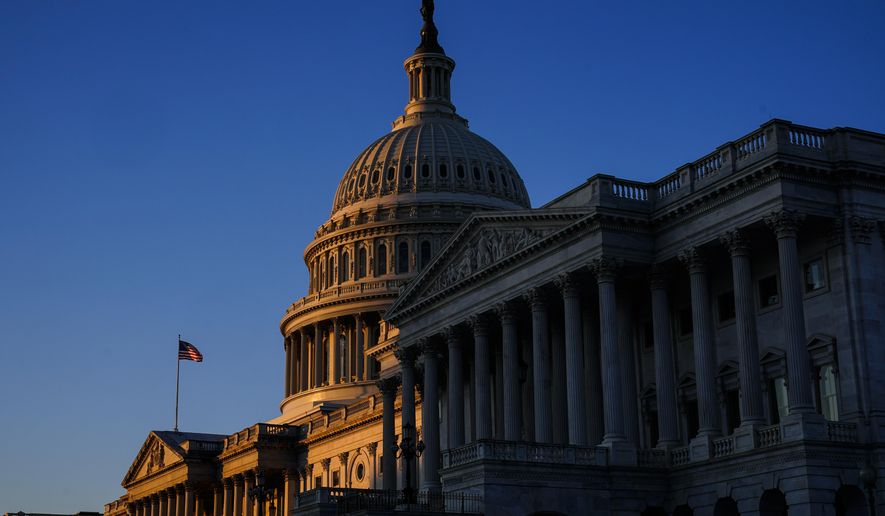A higher percentage of members of the 118th Congress, 88%, identify as Christian than the share of Christians in the U.S. population, which stands at 63%, a Pew Research Center analysis revealed Tuesday.
At the same time, Pew said the 469 Christians listed at the start of the new Congress is the lowest number since the nonpartisan group began analyzing the religious composition of Congress in 2009.
There are 303 Protestants in the new Congress, up six from the 117th session and the first time since 2015 that the number has topped 300. Catholics hold 148 seats, down 10 from the previous Congress. Their percentage of the session’s makeup, 28%, is higher than the number of Catholics in the U.S. overall.
Nine members of the Church of Jesus Christ of Latter-day Saints serve in the House and Senate alongside eight Orthodox Christians.
Freshman Rep. Anna Paulina Luna, Florida Republican, listed her affiliation as Messianic Jew, Pew said, although the group said she also identified as a Christian in the past. Messianic believers are Jews who assert Jesus is the Jewish Messiah.
Pew said its tally covers only 534 members, since Rep. Donald McEachin, Virginia Democrat, died Nov. 28 soon after winning a new term. A special election will be held in February to fill the vacant post.
There are 33 Jews in the new Congress, a loss of one from the 117th session. The percentage of Jewish members remains at 6%, three times the 2% Jewish share of the U.S. population.
Reps. Andre Carson, Indiana Democrat; Ilhan Omar, Minnesota Democrat; and Rashida Tlaib, Michigan Democrat, are the three Muslims in the House of Representatives. Each was reelected in 2022. Also returning are Hindus Rep. Ro Khanna, California Democrat; and Raja Krishnamoorthi, Illinois Democrat.
Rep. Hank Johnson of Georgia and Sen. Mazie K. Hirono of Hawaii, both Democrats, are the two Buddhists in Congress, Pew reported.
All three groups’ representation in Congress roughly aligns with their shares of the U.S. population.
Although a Gallup poll in December indicated approximately 1 in 5 Americans identify as religiously unaffiliated, only Sen. Kyrsten Sinema, Arizona independent, selected that category. An additional 20 members were listed as having unknown affiliations, while Rep. Jared Huffman, California Democrat, listed himself as a humanist.
Pew said its analysis is based on CQ Roll Call data on the religious affiliations of members of Congress, gathered through questionnaires and follow-up phone calls to candidates’ and members’ offices. The analysis does not measure the level of involvement members have with their stated faith affiliation.
• Mark A. Kellner can be reached at mkellner@washingtontimes.com.




Please read our comment policy before commenting.